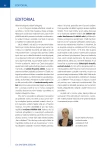NEPHROBLASTOMA – CURRENT EVALUATION AND TREATMENT
Authors:
Marcela Pýchová 1; Karel Švojgr 2; Josef Mališ 2; Michal Rygl 1; Karel Pýcha 1; Martin Kynčl 3; Roman Kodet 4; Jan Starý 2; Jiří Šnajdauf 1
Authors‘ workplace:
Klinika dětské chirurgie 2. LF UK a FN Motol, Praha
1; Klinika dětské hematoonkologie 2. LF UK a FN Motol, Praha
2; Klinika zobrazovacích metod 2. LF UK a FN Motol, Praha
3; Ústav patologie a molekulární medicíny 2. LF UK a FN Motol, Praha
4
Published in:
Ces Urol 2016; 20(2): 113-122
Category:
Review article
Overview
Nephroblastoma (Wilms tumor – WT) is the most common solid renal tumor in children. The patients are treated according to SIOP 2001 protocol. This protocol recommends pre-operative chemotherapy, nephrectomy and postoperative treatment. Blastemal and anaplastic histological subtypes are poor prognostic factors. It is a well treatable disease, with up to 90 % of patients cured.
Key words:
Nephroblastoma, therapy, Wilms´ tumor.
Sources
1. Mališ J, Švojgr K, Pýcha K, Jeřábková V,Cyprová S, et al. Nephroblastoma-30-years period of treatement in the University Hospital Motol,Klin.Onkol. 2013; 26(5): 336–342. Available from: http://www.ncbi.nlm.nih.gov/pubmed/24107156
2. Van den Heuvel-Eibrink MM, van Tinteren H, Bergeron C, et al. Outcome of localised blastemal-type Wilms tumour patients treated according to intensified treatment in the SIOP WT 2001 protocol, a report of the SIOP Renal Tumour Study Group (SIOP-RTSG). Eur J Cancer [Internet]. Elsevier Ltd; 2015; 51(4): 498–506.
Available from: http://linkinghub.elsevier.com/retrieve/pii/S095980491401171X
3. Parenti R, Salvatorelli L, Musumeci G, et al. Wilms’ tumor 1 (WT1) protein expression in human developing tissues. Acta Histochem [Internet]. Elsevier GmbH.; 2015; 1 : 1–11. Available from: http://linkinghub. elsevier.com/retrieve/pii/S0065128115000574
4. Salvatorelli L, Parenti R, Leone G, Musumeci G, Vasquez E, Magro G. Wilms tumor 1 (WT1) protein: Diagnostic utility in pediatric tumors [Internet]. Acta Histochemica. Elsevier GmbH.; 2015. 1–12 p.
Available from: http://linkinghub.elsevier.com/retrieve/pii/S0065128115000586
5. Freier K, Knoepfle K, Flechtenmacher C, et al. Recurrent copy number gain of transcription factor SOX2 and corresponding high protein expression in oral squamous cell carcinoma. Genes Chromosomes Cancer. 2010; 49(1): 9–16.
6. Dumoucel S, Gauthier-Villars M, Stoppa-Lyonnet D, et al. Malformations, genetic abnormalities, and Wilms tumor.Pediatr Blood Cancer. 2014 Jan, 61(1): 140–144. doi:10.1002/pbc.24709. Epub 2013 Aug 23.
7. Gratias EJ, Jennings LJ, Anderson JR, Dome JS, Grundy P, Perlman EJ. Gain of 1q is associated with inferior event-free and overall survival in patients with favorable histology Wilms tumor: A report from the Children’s Oncology Group. Cancer. 2013; 119(21): 3887–3894.
8. Protocol SIOP 2001Wilm’s tumor.
9. Ansari S, MIiri AB, Rakhshani N. Bilateral Wilms’ Tumor Metastasis to Right Spermatic Cord. Int J Hematol Oncol Stem Cell Res. 2013; 7(4): 45–48.
10. Umbrella Protocol Siop 2014.
11. Dumba M, Jawad N, McHugh K. Neuroblastoma and nephroblastoma: a radiological review. Cancer Imaging [Internet]. 2015; 15(1). Available from: http://www.cancerimagingjournal.com/content/15/1/5
12. Smets AMJB, Tinteren H Van, Bergeron C, et al. The contribution of chest CT-scan at diagnosis in children with unilateral Wilms’ tumour. Results of the SIOP 2001 study. Eur J Cancer [Internet]. Elsevier Ltd; 2012; 48(7): 1060–1065.
Available from: http://dx.doi.org/10.1016/j.ejca.2011.05.025
13. Godzinski J, Graf N, Audry G. Current concepts in surgery for wilms tumor – the risk and function - -adapted strategy. 2014;
14. Harel M, Makari JH, Ferrer FA. Oncology: The role of partial nephrectomy in wilms tumor. Curr Urol Rep. 2013; 14(4): 350–358.
15. Kieran K, Davidoff AM. Nephron-sparing surgery for bilateral Wilms tumor. Pediatr Surg Int [Internet]. 2015; 31(3): 229–236. Available from: http://link.springer.com/10.1007/s00383-015-3668-1
16. Isabel I, Joshua PL, Elizabeth NH, et al. Experience with Retroperitoneal Partial Nephrectomy in Bilateral Wilms Tumor. 2015;
17. Hubertus J, Günther B, Becker K, Graf N, Furtwängler R, Ferrari R, et al. Development of hypertension is less frequent after bilateral nephron sparing surgery for bilateral wilms tumor in a long-term survey. J Urol [Internet]. 2015; 193(1): 262–267.
Available from: http://linkinghub.elsevier.com/retrieve/pii/S0022534714041585
18. Forbes C, Butterworth SA. Perioperative outcomes of primary renal tumour resections: comparison of in-hours to out-of-hours surgery. Pediatr Surg Int [Internet]. 2014; 30(10): 1003–1007.
Available from: http://link.springer.com/10.1007/s00383–014–3560–4
19. Gow KW, Barnhart DC, Hamilton TE, et al. Primary nephrectomy and intraoperative tumor spill: Report from the Children’s Oncology Group (COG) renal tumors committee. J Pediatr Surg [Internet]. Elsevier Inc.; 2013; 48(1): 34–88.
Available from: http://dx.doi.org/10.1016/j.jpedsurg.2012.10.015
20. Warmann SW, Godzinski J, van Tinteren H, et al. Minimally invasive nephrectomy for Wilms tumors in children – data from SIOP 2001. J Pediatr Surg [Internet]. Elsevier Inc.; 2014; 49(11): 1544–1548. Available
from: http://linkinghub.elsevier.com/retrieve/pii/S0022346814003935
21. Kieran K, Williams MA, McGregor LM, Dome JS, Krasin MJ, Davidoff AM. Repeat nephron-sparing surgery for children with bilateral Wilms tumor. J Pediatr Surg [Internet]. Elsevier Inc.; 2014; 49(1): 149–153.
Available from: http://dx.doi.org/10.1016/j.jpedsurg.2013.09.048
Labels
Paediatric urologist Nephrology UrologyArticle was published in
Czech Urology

2016 Issue 2
-
All articles in this issue
- LAPAROSCOPIC URETERAL REIMPLANTATION – VIDEO
- LAPAROSCOPIC RADICAL CYSTECTOMY – VIDEO 2015
- ROBOT ASSISTED PERFORMANCES IN ANDROLOGY
- NEPHROBLASTOMA – CURRENT EVALUATION AND TREATMENT
- ARTEFICIAL SOMATO-CNS-AUTONOMIC MICTURITION REFLEX – EXPERIMENTAL VERIFICATION
- EARLY POSTOPERATIVE COMPLICATIONS AFTER RADICAL CYSTECTOMY WITH ORTHOTOPIC BLADDER SUBSTITUTION
- APLICATION OF DETOUR EXTRA-ANATOMIC STENT AFTER DESINTEGRATION LEFT URETEROINTESTINAL ANASTOMOSIS
- THE CONSEQUENCES OF PENILE SUBCUTANEOUS APPLICATIONS OF THE FOREIGN MATERIALS
- PROFESSOR TOMÁŠ HANUŠ, M.D., DrSc., CELEBRATES HIS BIRTHDAY
- CONGRESS REPORT – 4TH CZECH VIDEO-TUTORIAL 2016
- THE 2ND UROLOGY-NEUROLOGY SYMPOSIUM IN OSTRAVA
- A REPORT FROM THE 37TH WORKING DAYS OF PAEDIATRIC NEPHROLOGY AND THE 27TH ANNUAL MEETING OF PAEDIATRIC UROLOGISTS
- KNOU 2016 – COMPREHENSIVE NEWS IN ONCOLOGICAL UROLOGY
- PROF. MICHAL HORŇÁK, M.D., DRSC. A LEADING SLOVAK UROLOGIST, PASSED AWAY
- KEY UROLOGICAL SURGICAL PROCEDURES IN THE CZECH REPUBLIC IN PERIOD 2009–2014
- BLACK ADENOMA OF THE ADRENAL GLAND
- Czech Urology
- Journal archive
- Current issue
- About the journal
Most read in this issue
- THE CONSEQUENCES OF PENILE SUBCUTANEOUS APPLICATIONS OF THE FOREIGN MATERIALS
- NEPHROBLASTOMA – CURRENT EVALUATION AND TREATMENT
- BLACK ADENOMA OF THE ADRENAL GLAND
- KEY UROLOGICAL SURGICAL PROCEDURES IN THE CZECH REPUBLIC IN PERIOD 2009–2014
